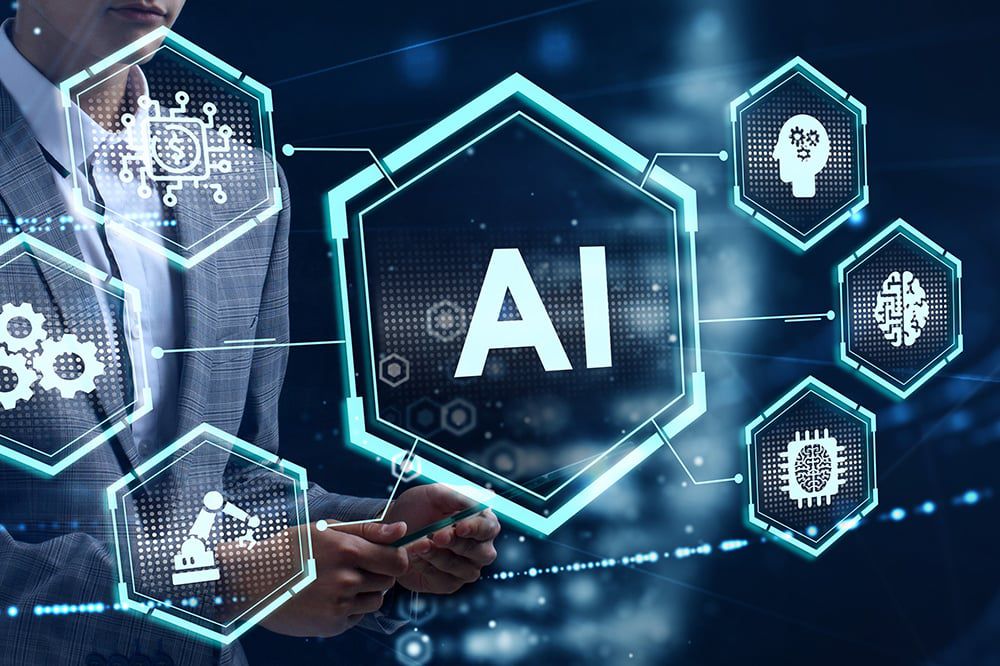The demand for artificial intelligence (AI) practitioners and budgets for AI initiatives have never been higher. Digital transformation brought about by drivers such as the global pandemic has significantly accelerated the development of artificial intelligence and machine learning technologies. More and more companies are looking at how to unlock the value of artificial intelligence and make it useful in the real world, often to the benefit of their business and their customers. Organizations looking to launch their own initiatives will have a good idea of the real opportunities and challenges in the field of artificial intelligence.
The Value of Artificial Intelligence
When we refer to the value of artificial intelligence, we are referring to two aspects: its benefits to society as a whole and its benefits to businesses. Some AI use cases are purely about maximizing business efficiency, while others have a positive impact on the lives of end users (in fact, there is often overlap between the two).
social benefit
Artificial intelligence can improve the user experience of technology, enhance customer-enterprise interaction, and create a more personalized and faster user experience. We see this in the use of fraud detection technology, personalized virtual assistants, customized search suggestions, and many other AI interactions.
In the best cases, AI can even help save lives. Smart cars with driver assistance features are a popular example of using artificial intelligence to improve road safety. But take the application of artificial intelligence in medical imaging technology as an example. Using machine learning techniques, algorithms can analyze MRIs to detect cancer. Doctors use the results to target radiation therapy more precisely and reduce damage to tissue. In some cases, AI’s contribution can be a matter of life or death.
In another example, researchers are applying artificial intelligence to extreme weather forecasting. For example, if they can predict the intensity of a tropical storm based on satellite imagery, they can inform rescue teams and potential evacuees of a plan of action before it’s too late. Key sectors such as healthcare, automotive, aerospace, and defense are harnessing the power of AI primarily to enhance safety measures, solidifying its role as an indispensable element within their operations. Ultimately, AI has the potential to exert an immensely beneficial influence on numerous facets of society, ranging from time-saving applications to life-saving advancements.

Benefits to business
Organizations are also turning to AI to maximize internal efficiencies. They are using artificial intelligence to grow their business, increase revenue and reduce costs. For example, in the energy sector, companies use AI to predict energy consumption in advance, which helps them regulate required production and save significant amounts of money. Companies are also using artificial intelligence to optimize internal workflows. Algorithms can manage mundane tasks previously performed by humans, saving considerable effort and time.
For example, a bank’s chatbot can answer customers’ daily questions almost instantly, speeding up the customer experience and reducing company overhead. Artificial intelligence also helps streamline the machine learning process. If a team needs to develop training data for their machine learning model, algorithms can provide initial hypotheses on the data labels. This makes the data annotator’s job much easier: they only need to verify or correct existing labels instead of starting from scratch.
These algorithms are also useful for providing quality control during the AI development process, ensuring that labeled training data meets the expected accuracy. Whenever a business relies heavily on data, even minor adjustments to a particular process can contribute significantly to its overall value.
The future value of artificial intelligence
AI development is moving from a model-centric approach to a data-centric approach as teams realize the critical role of high-quality data in model performance. But even more exciting is seeing advances in human-centered AI: AI that learns from and works with humans. This evolution aims to bridge the gap between humans and machines, which will be the true value of artificial intelligence.
conclusion
FAQs
Q1: What is Artificial Intelligence (AI) and why is it valuable?
A1: Artificial Intelligence (AI) refers to the development of computer systems that can perform tasks typically requiring human intelligence, such as problem-solving, learning, and decision-making. It is valuable because it can enhance efficiency, accuracy, and innovation across various industries.
Q2: How does AI create value in businesses?
A2: AI creates value in businesses by automating repetitive tasks, improving data analysis, predicting future trends, enhancing customer experiences, and optimizing operations, ultimately leading to cost savings and revenue growth.
Q3: What are some real-world applications of AI that demonstrate its value?
A3: AI is applied in healthcare for diagnosing diseases, in finance for fraud detection, in autonomous vehicles for safety, in e-commerce for personalized recommendations, and in manufacturing for quality control, among many other sectors.
Q4: Can AI replace human jobs, and is this a concern?
A4: AI can automate certain tasks, potentially displacing jobs, but it also creates new job opportunities in AI development and maintenance. The concern lies in ensuring a smooth transition and upskilling the workforce.
Q5: How can AI be used to address societal challenges and create value for society as a whole?
A5: AI can address challenges such as climate change, healthcare access, and education by optimizing resource allocation, predicting environmental trends, and personalizing learning experiences, ultimately benefiting society.


